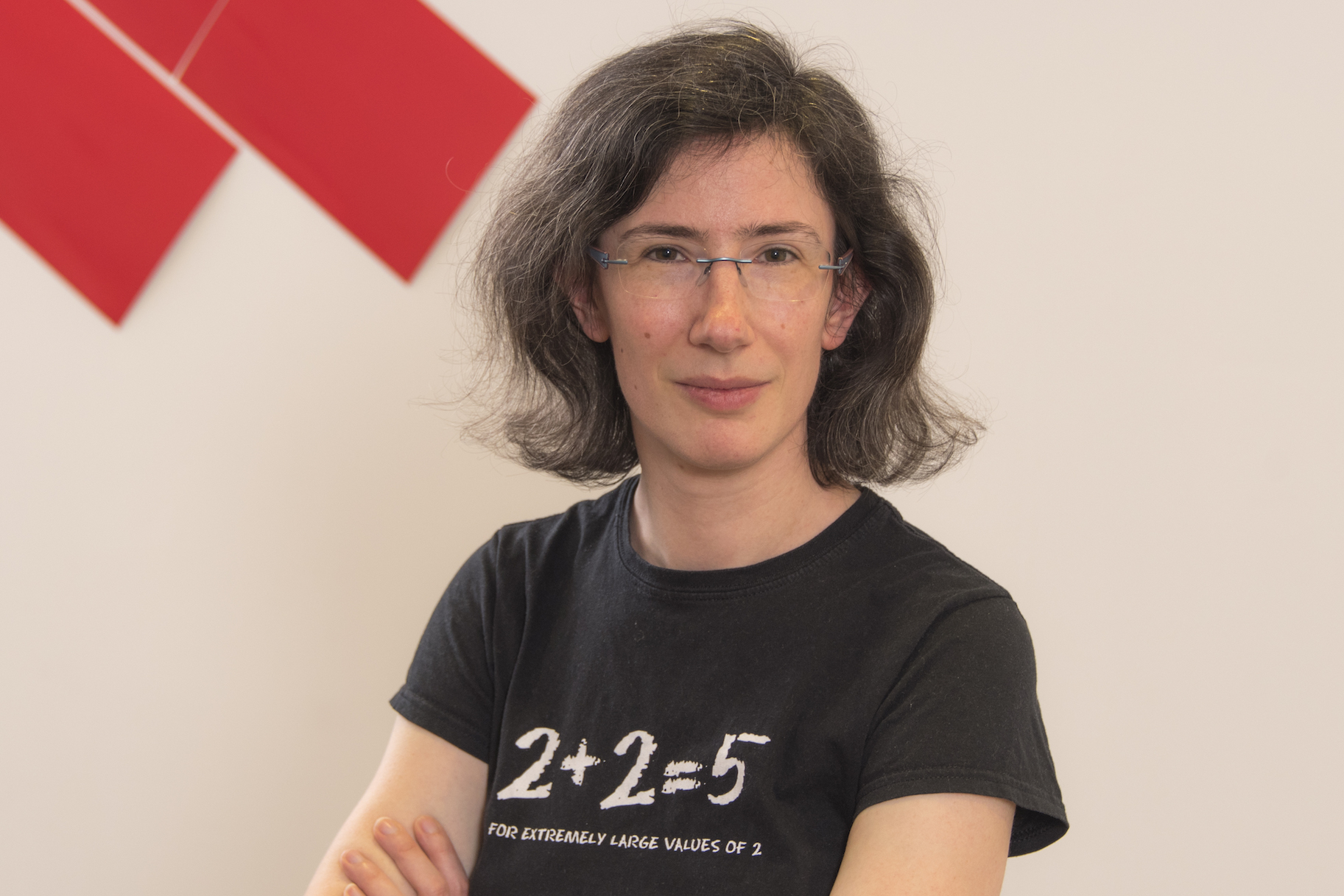Sylvie Boldo named president of the first computer science aggregation
Date:
Changed on 01/07/2021

A few weeks ago, the General Inspection asked me if I would be willing to chair the jury of this computer science aggregation. This was not at all part of my plans, I had never considered taking such a position, but I finally accepted after consulting the programs and many people involved.
My role today is to supervise the writing of the subjects and to set up an oral jury, knowing that there are various constraints in the constitution of a jury. The description of the exams (the model) is finalized, the aggregation has been created, and we are still working on the programs, an almost finalized version being available.
I am very happy that computer science has finally found its place as a subject because for a long time it was considered a technique, a "little extra" taught in small steps as part of other subjects. But computer science is not just a technology, it is a science with fundamental and perennial concepts.
After a lot of lobbying by recognized figures, by the NGS and by the FIS, things really started to move in 2019. As part of the reform of the baccalaureate, a specialization in Digital and Computer Sciences has been proposed to students preparing the general baccalaureate. Teachers, specialized in other subjects such as mathematics, physics or technology, have thus wished to teach computer science as a subject in its own right, and have had to train on the subject. It is important to underline that these teachers did a great job, and participated in the teaching of computer science even though it was not their core business.
But this was temporary, and it was quickly agreed that it was necessary to have real computer scientists to teach the subject. In 2020, a CAPES in computer science was therefore opened. It was a first way to recruit real teachers in computer science.
Today, computer science is getting ready to enter the preparatory classes since the MP2I and MPI tracks, which are more focused on mathematics and computer science, will open at the beginning of the next school year. The programs are quite important and relatively heavy, and well-trained teachers are needed to handle them. This is also the reason why this aggregation is opening.
Since this is the first session, we don't really know how many candidates will show up.
I hope that the transmission of our knowledge will attract candidates. It is important to recruit good teachers because they are the ones who will show the discipline to the younger ones. How many students don't like a subject because they don't like the teacher? We realize that we will be looking for people who tick a lot of boxes, combining theory, practice and pedagogy. We are open to all types of profiles: university and ENS of course, but we also hope to attract people who have had a career in industry before.
Why is the creation of this computer science aggregation good news?
The steps to have computer science recognized as a discipline in its own right started at least 50 years ago. The creation of the Aggregation of Computer Science can be seen as the result of this long process. This has a very strong symbolic impact, given the special place of this competitive examination in the French system. But beyond the symbolism, having more computer scientists teaching computer science will certainly increase vocations for the discipline. We can only be happy about this!
What role has Inria played in the recognition of computer science as a science in its own right? What remains to be done?
Scientists at Inria have been involved in this process for several decades, alongside colleagues from other institutions and associations such as the SIF. With the gradual introduction of various options and specialties, young people can now be trained in computer science throughout their schooling. At last! But this is not the end of the story: more young people, especially girls, must be encouraged to go into the digital sciences. The entire community must continue to pass on its passion and encourage people to take up the field. Inria, in its rightful place, remains mobilized on this major issue for our country.